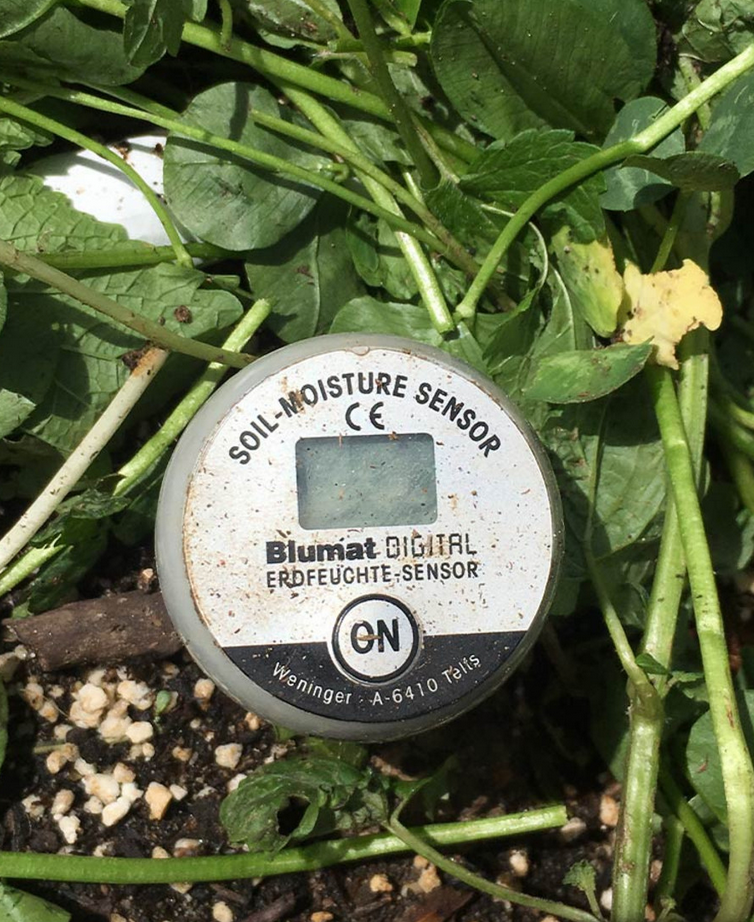Leading 10 Advantages of Using a Moisture Meter for Exact Measurements in Your Home
Leading 10 Advantages of Using a Moisture Meter for Exact Measurements in Your Home
Blog Article
The Ultimate Overview to Dampness Meters: A Comprehensive Summary and Just How They Can Conserve You Money
Dampness meters serve as important tools in discovering and checking moisture content in products, assisting in protecting against expensive problems and ensuring the top quality of products. Recognizing the nuances of various kinds of wetness meters, their applications, and the prospective cost-saving advantages they offer can be a game-changer for services and specialists alike.
Kinds Of Moisture Meters
One common kind is the pin-type dampness meter, which determines the electric resistance between two pins put into a product. Pinless dampness meters, on the other hand, usage electro-magnetic sensing unit plates to scan a larger location without causing damages to the material's surface.

Furthermore, there are also specialized wetness meters developed for particular materials like hay, grain, or dirt. These meters offer exact wetness readings customized to the one-of-a-kind residential properties of the product being evaluated. Infrared wetness meters determine the thermal residential or commercial properties of a material to establish its wetness content non-invasively, making them useful for applications where pin or pinless meters may not be ideal. Comprehending the various sorts of dampness meters readily available can assist markets choose one of the most ideal device for their specific moisture dimension needs.

Advantages of Utilizing Moisture Meters
Moisture meters use invaluable benefits in precisely assessing and checking dampness levels in varied materials and settings (Moisture Meter). One of the primary benefits of utilizing moisture meters is the prevention of potential damage created by excess wetness. By discovering and dealing with high moisture levels beforehand, dampness meters assist to prevent mold development, rot, and architectural damages in structures, saving both time and money on fixings. Furthermore, moisture meters aid in making sure the high quality of materials during building or production processes. By accurately gauging dampness content, these devices help keep the integrity of timber, drywall, concrete, and other products, lowering the risk of failures or flaws.
In addition, making use of moisture meters can lead to increased power effectiveness. By identifying locations with high wetness degrees, such as leaks or poor insulation, adjustments can be made to enhance power conservation and minimize utility expenses. In agricultural setups, dampness meters play an essential function in maximizing plant returns by allowing farmers to monitor dirt dampness degrees and make educated irrigation choices. Overall, the advantages of utilizing moisture meters span throughout numerous industries, providing affordable solutions and promoting better quality assurance methods.
How to Pick the Right Wetness Meter
Choosing the appropriate wetness meter entails thinking about vital aspects such as product compatibility, measurement variety, and calibration accuracy. When picking a moisture meter, it's vital to make certain that the meter is ideal for the details material you will be screening. Various products have differing electric residential properties that can affect dampness analyses, so choosing a meter created for your product is vital for precise outcomes. In addition, consider the measurement variety of the dampness meter. Ensure that the meter can find dampness degrees within the range required for your applications. Calibration accuracy is an additional click this link crucial factor to remember. Choose a wetness meter with reliable calibration to guarantee constant and specific readings. Some meters may require periodic calibration changes, so recognizing the calibration process is very important. By meticulously examining these elements, you can choose a dampness meter that satisfies your requirements and gives accurate dampness dimensions for your projects.
Appropriate Strategies for Moisture Meter Usage

Cost Cost Savings Through Moisture Meter Applications
How can the calculated usage of wetness meters lead to considerable expense financial savings across different markets? In the agriculture sector, dampness meters aid in establishing the optimal time for collecting plants, avoiding excess or over-drying wetness that can influence the final product's top quality.
Likewise, in construction, wetness meters aid stop costly damages by discovering moisture degrees in structure materials, such as timber or concrete, which can lead to architectural issues if not addressed immediately. By identifying issue locations early on, professionals can take corrective steps to stay clear of comprehensive fixings or replacements, eventually saving money and time.
Furthermore, in the food handling market, wetness meters are essential for checking item quality and making certain conformity with safety regulations. By properly measuring dampness material in more foodstuff, suppliers can prevent putridity, keep freshness, and reduce waste, leading to substantial price financial savings. In general, the critical application of moisture meters is a useful investment that can cause significant cost decreases and improved effectiveness across various sectors.
Final Thought
In final thought, moisture meters are important devices for determining and spotting wetness degrees in various products. By making use of the best wetness meter and adhering to appropriate techniques, individuals can effectively prevent expensive problems triggered by excess moisture. Investing in a top quality moisture meter can lead to significant expense savings in the lengthy run by recognizing prospective concerns early and making it possible for prompt removal. Inevitably, wetness meters are crucial tools for maintaining the integrity and durability of materials and structures.
Wetness meters offer as essential devices in spotting and checking moisture material in materials, aiding in stopping costly problems and making sure the high quality of products. Infrared wetness meters determine the thermal buildings of a product to determine its dampness material non-invasively, making them beneficial for applications where pin or pinless meters may not be suitable.Dampness meters use important advantages in properly keeping track of and examining moisture levels in varied products and atmospheres. In agricultural settings, dampness meters play a critical role in optimizing crop returns by allowing farmers to monitor soil Clicking Here wetness degrees and make notified irrigation decisions.In final thought, moisture meters are useful tools for measuring and identifying moisture degrees in numerous products.
Report this page